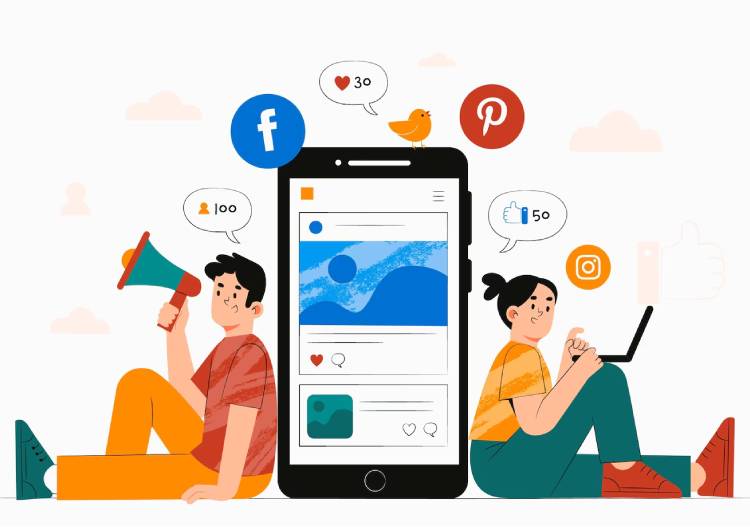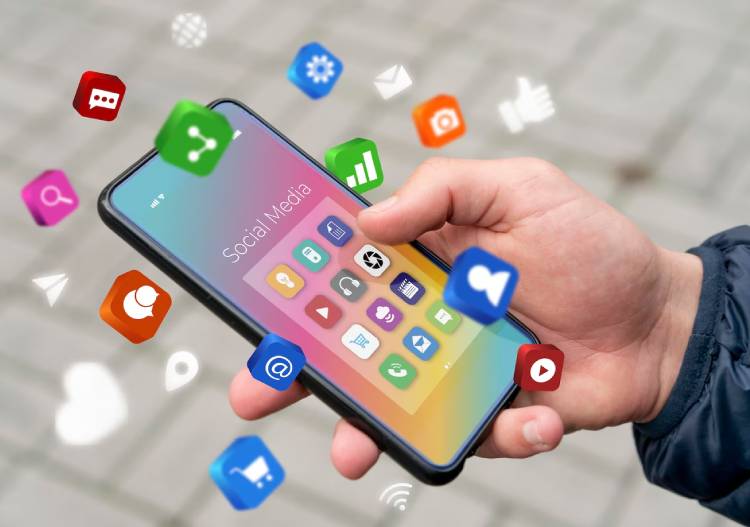- February 15, 2025
- by admin
The Power of Digital Marketing in Modern Business
The Power of Digital Marketing in Modern Business: A Game-Changer for Growth
In today’s fast-paced, technology-driven world, businesses are constantly evolving to meet the demands of an increasingly digital marketplace. Traditional marketing methods, while still relevant, are no longer sufficient to keep up with the dynamic needs of modern consumers. Enter digital marketing—a powerful tool that has revolutionized the way businesses connect with their audiences, build brand awareness, and drive growth. In this blog, we’ll explore the importance of digital marketing in modern business and how it can be leveraged to achieve success.
What is Digital Marketing?
Digital marketing refers to the use of digital channels, platforms, and technologies to promote products, services, or brands. It encompasses a wide range of strategies, including search engine optimization (SEO), social media marketing, email marketing, content marketing, pay-per-click (PPC) advertising, and more. Unlike traditional marketing, digital marketing allows businesses to reach their target audience in real-time, track performance metrics, and adjust strategies on the fly.
Why is Digital Marketing Essential for Modern Businesses?
Global Reach, Local Impact
Digital marketing breaks down geographical barriers, enabling businesses to reach a global audience. Whether you’re a small local business or a multinational corporation, digital platforms like Google, Facebook, and Instagram allow you to connect with customers worldwide. At the same time, tools like geotargeting ensure that your marketing efforts are tailored to specific regions or demographics.
Cost-Effective and Measurable
Compared to traditional marketing methods like TV ads or billboards, digital marketing is far more cost-effective. Platforms like Google Ads and Facebook Ads allow businesses to set their own budgets and pay only for the results they achieve. Additionally, digital marketing provides detailed analytics, enabling businesses to measure the ROI of their campaigns and optimize them for better performance.
Personalized Customer Experiences
Modern consumers expect personalized interactions with brands. Digital marketing allows businesses to collect data on customer preferences, behaviors, and purchasing patterns. This data can be used to create highly targeted campaigns, personalized email content, and tailored product recommendations, enhancing the overall customer experience.
Enhanced Engagement and Interaction
Social media platforms have transformed the way businesses interact with their audiences. Through likes, comments, shares, and direct messages, brands can engage with customers in real-time, build relationships, and foster loyalty. This two-way communication is a cornerstone of modern marketing.
Staying Ahead of the Competition
In today’s competitive landscape, businesses that fail to embrace digital marketing risk falling behind. A strong online presence, optimized website, and active social media profiles are no longer optional—they’re essential for staying relevant and competitive.


Key Components of Digital Marketing
Search Engine Optimization (SEO)
SEO is the process of optimizing your website to rank higher on search engine results pages (SERPs). By targeting relevant keywords, creating high-quality content, and improving site speed and user experience, businesses can attract organic traffic and increase visibility.
Social Media Marketing
Platforms like Facebook, Instagram, LinkedIn, and TikTok offer businesses the opportunity to connect with their target audience, share engaging content, and run targeted ad campaigns. Social media is also a powerful tool for building brand identity and fostering community.
Content Marketing
Content is king in the digital world. Blogs, videos, infographics, and eBooks help businesses educate, entertain, and engage their audience while establishing authority in their industry.
Email Marketing
Email remains one of the most effective digital marketing channels. From newsletters to promotional offers, email marketing allows businesses to nurture leads, retain customers, and drive conversions.
Pay-Per-Click (PPC) Advertising
PPC ads, such as Google Ads or social media ads, allow businesses to target specific keywords or demographics and pay only when a user clicks on their ad. This method delivers immediate results and is highly scalable.
Influencer Marketing
Collaborating with influencers—individuals with a large and engaged following—can help businesses reach new audiences and build trust through authentic endorsements.
The Future of Digital Marketing
As technology continues to advance, digital marketing is poised to become even more sophisticated. Emerging trends like artificial intelligence (AI), chatbots, voice search optimization, and augmented reality (AR) are reshaping the way businesses interact with consumers. For example, AI-powered tools can analyze customer data to predict behavior and automate personalized marketing campaigns, while AR allows customers to “try before they buy” in a virtual environment.
Additionally, the rise of video content and short-form videos (e.g., TikTok, Instagram Reels) is transforming how brands tell their stories. Businesses that embrace these trends and adapt to changing consumer preferences will be well-positioned for success in the digital age.

